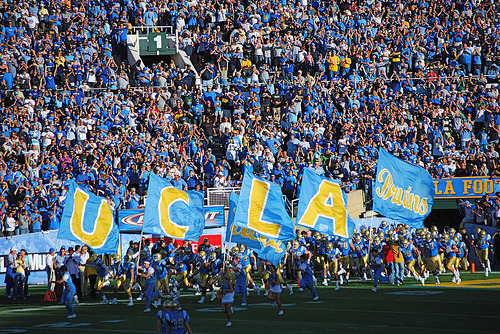Cody (left) and Ryan (right) are both studying at Allan Hancock College. Cody is studying Photography and Ryan is studying Film and Video Production and they both would like to transfer to San Francisco State.
ME: What are your reasons for going to Community College?
 CODY: I wanted to go to Hancock first so I could do my general ed. quietly and cheap and I was also able to stay at home. So right now we just finished our second semester and since we are doing really good with general ed we are on track to transfer.
CODY: I wanted to go to Hancock first so I could do my general ed. quietly and cheap and I was also able to stay at home. So right now we just finished our second semester and since we are doing really good with general ed we are on track to transfer.RYAN: My reasons for going to Hancock are pretty much the same as hers. With the major that I am going into, experience is very helpful as to pursuing a career out of it and Hancock is not only ranked Top 5 as one of the best Junior Colleges in the state, but their film program is very diverse and has a lot of programs and areas of interest that you can do and so I wanted to go to Hancock not only because it was cheap and affordable but I could better myself in film knowledge that I can carry when I transfer.
ME: Do you believe Community College was a good choice?
 CODY: Yes because not everyone knows what they want to do. I am changing my major, personally from when I got into Hancock and it's only been a year. So Hancock serves as a cushion for you to decide and makes it easier to adjust into things, like dipping your toe in to test the waters. You're not just jumping right into college so it was calming and not so stressful going to Hancock.
CODY: Yes because not everyone knows what they want to do. I am changing my major, personally from when I got into Hancock and it's only been a year. So Hancock serves as a cushion for you to decide and makes it easier to adjust into things, like dipping your toe in to test the waters. You're not just jumping right into college so it was calming and not so stressful going to Hancock.RYAN: The same!

ME:What is a positive about Community College and what is a negative?
RYAN: You are familiar with the area and you are comfortable.
CODY: A negative is that you kind of feel like you might be trapped a little because your friends went off to college and you stayed here but all my friends stayed to study here but I still feel like I could've probably done it but I still think its the better choice. If you're not sure or if you need to save money, Hancock is the better choice.
ME:What is helping you stay on track in order to transfer?
RYAN: The counseling office! They have a transfer center so they not only help you pick classes for your major but also classes that help you transfer on. We both met with a transfer counselor and I don't have to worry about my schedule for next year because it is already set! And the counselors there went to school to be transfer counselors so they know exactly what they are doing.
ME: Any other advice you would like to give to student that will be attending Community College next year?
 CODY: Don't feel embarrassed if you are going to Hancock just because your friends went off to a 4 year university. It's truly is beneficial to go since you save money and you can figure out what you want to do. Hancock is a great school, it offers great classes and great programs. You learn a lot and there are really good professors there.
CODY: Don't feel embarrassed if you are going to Hancock just because your friends went off to a 4 year university. It's truly is beneficial to go since you save money and you can figure out what you want to do. Hancock is a great school, it offers great classes and great programs. You learn a lot and there are really good professors there.RYAN: With any school you go to, its all about what you make of it. you can take the easiest courses, sit by idly or you can take some of the more challenging classes and you can say "Oh you know what, I am not a decided major yet but that looks interesting" and you find out that that is what you want to do with the rest of your life. Its all about what you make of it.












